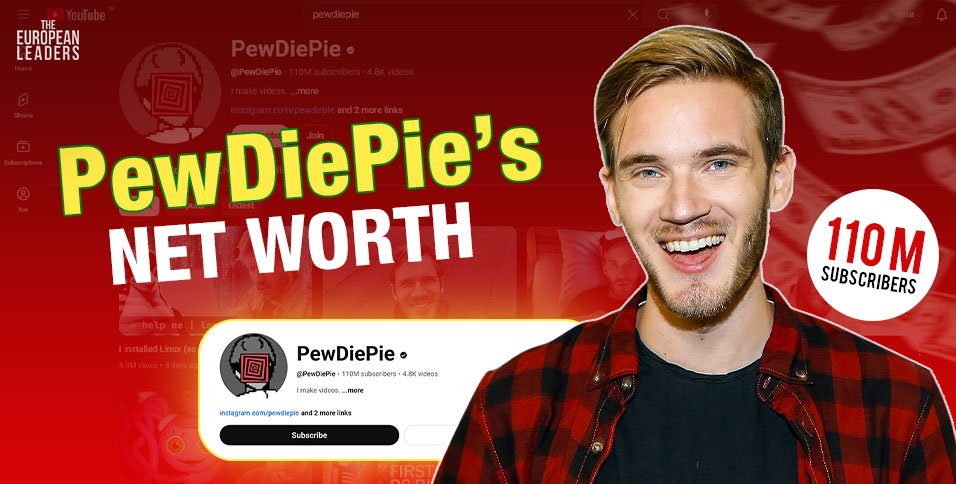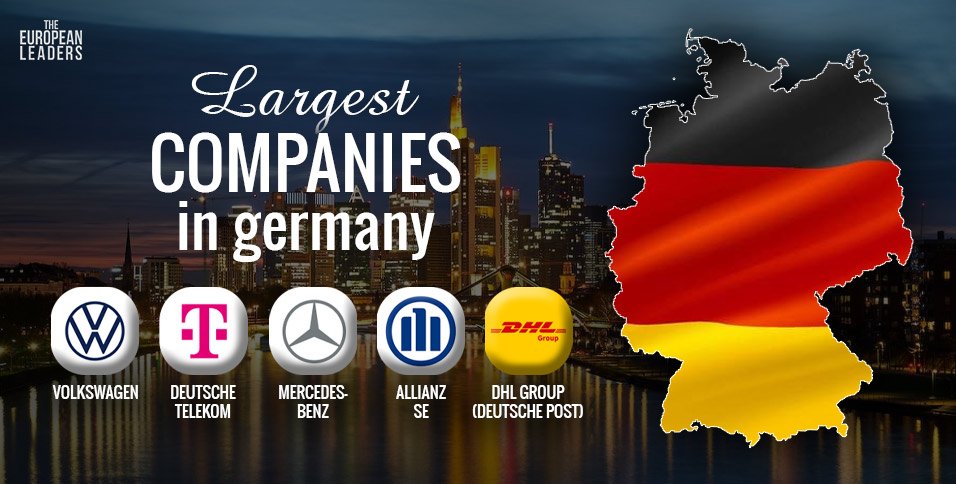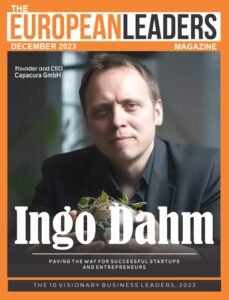Forget everything you thought you knew about building a fortune! Imagine transforming simple video game commentary and raw authenticity into an estimated $45 million empire. Sounds impossible? Yet, that’s the astonishing reality of a figure who defied traditional paths to wealth, starting not in a boardroom, but literally from a hot dog stand.
Who is this internet icon, and how in the world did he leverage pixels and personality to build a net worth hovering around $45 million?
This isn’t just a story of luck; it’s a deep dive into the strategic hustle, viral moments, surprising business ventures, and incredible resilience that forged one of the creator economy’s biggest success stories. Prepare to uncover the full, fascinating journey of PewDiePie’s net worth – from humble beginnings to a global titan.
If you’re ready to unlock the secrets behind building monumental wealth online, keep reading. Your curiosity is about to be rewarded.
But, before we set out to explore his networth journey, let’s get to know him!
Here’s an overview of PewDiePie’s personal life!
| Aspect | Details |
| Full Name | Felix Arvid Ulf Kjellberg |
| Date of Birth | October 24, 1989 |
| Place of Birth | Gothenburg, Västra Götaland, Sweden |
| Parents | Lotta Kristine Johanna (CIO); Ulf Kjellberg (CEO/corporate executive) |
| Siblings | 1 older sister, Fanny |
| Spouse | Marzia Kjellberg (née Bisognin, married 2019) |
| Children | 1 (son, Björn Kjellberg, born July 11, 2023) |
| Current Residence | Japan (as of 2025) |
| Former Residences | Brighton (UK), Gothenburg (Sweden) |
| Education | Chalmers University of Technology (did not complete) |
| Notable Pets | Maya (pug, deceased), Edgar (pug), Momo (chug), Slippy (cane toad, deceased), Ynk (Yorkshire Terrier, deceased) |
Now, Let’s Explore PewDiePie’s Net Worth Journey
- From Felix Kjellberg to PewDiePie: The Early Days–Where It All Began?
Picture this: A creative student in Sweden, more interested in Photoshop art and video games than his industrial economics studies. That’s Felix Arvid Ulf Kjellberg, born on October 24, 1989, in Gothenburg. You might think his path was set, especially with a super-achiever mom (Sweden’s CIO of the Year!) and a corporate executive dad. But Felix? He had other plans.
He enrolled at Chalmers University of Technology after graduating from high school (Göteborgs Högre Samskola) in 2008. But the passion just wasn’t there. It wasn’t just about YouTube, as some tales go; Felix openly admitted he simply lost interest in his major. Imagine making that call – stepping away from a prestigious path to follow something uncertain!
Here’s where the real hustle started. When parental support stopped, Felix wasn’t deterred. He actually worked at a hot dog stand right there in Gothenburg! He even sold his unique Photoshop art pieces, saving every penny for a better computer. Talk about dedication, right? That computer became the launchpad for a digital empire.
His first channel, ‘Pewdie,’ started back in 2006. But after losing the password (we’ve all been there!), he kicked off ‘PewDiePie’ on April 29, 2010. His early focus? Horror games like Amnesia: The Dark Descent. The growth wasn’t overnight, but his raw, high-energy commentary and sheer consistency struck a chord. People loved his realness, way more than polished perfection.
- The YouTube Rocket Ship: Subscribers, Views, and Making Bank
PewDiePie’s climb wasn’t just growth; it was an explosion! Check out these milestones:
- December 2011: Already hit 60,000 subscribers. Impressive!
- July 2012: Crossed the 1 million subscriber mark. HUGE!
- September 2012: Just two months later? Doubled it to 2 million! The momentum was insane.
- February 2013: 5 million subs.
- July 2013: 10 million subs.
- December 2016: A massive 50 million, earning him the Ruby Play Button. Wow!
- August 2019: Shattered the 100 million barrier, grabbing that elusive Red Diamond Play Button. Mind-blowing!
But Felix wasn’t a one-trick pony. His content grew up alongside the internet. Starting with those scream-inducing Let’s Plays, he branched out. Vlogs, funny skits, meme reviews (Fridays with PewDiePie, anyone?), and then – boom! – his 2019 Minecraft series absolutely revitalized his channel, pulling in viewers old and new. Lately, he’s shifted again, leaning into more personal, unstructured vlogs from his life in Japan. That ability to adapt? That’s pure genius.
So, How Did the Money Flow In?
Let’s talk cash. PewDiePie’s YouTube AdSense earnings have always been a hot topic. How it works is complex – based on ad views (CPM), video views (RPM), video length, who’s watching, and if they click ads. Big names like Pewds often get better rates. During his peak years, insiders and Forbes suggested he might have pulled in $12 million in 2017 just from YouTube ads. Think about that! It shows the sheer power of a massive, global audience, but also how much these earnings can fluctuate.
Remember ‘Scare PewDiePie’? That was part of YouTube Red (now Premium), a big-budget show funded by YouTube itself. It was a significant income source and a mark of prestige. Its cancellation in 2017 after some controversy wasn’t just a PR hit; it was a financial blow, showing how tricky relying too heavily on one platform can be.
He also cleverly used features like Channel Memberships and Super Chat, letting fans support him directly while building an even stronger community connection. Smart moves!
- Beyond YouTube: The Entrepreneurial Spirit
Felix wasn’t content just being a YouTuber; he had that entrepreneurial fire!
- Merchandise Empires: Represent and Tsuki Market
Early on, fans could grab cool tees and gear through his ‘Represent’ brand deals. But the real game-changer? Tsuki Market. Co-founded with his wife, Marzia, this lifestyle brand, inspired by Japanese minimalism and sustainability, absolutely took off.
There were reports (like from MoneyMade) mentioning jaw-dropping figures like $6.8 million in revenue per month at its absolute peak! Now, that’s likely a historical high point, not a regular monthly income, but it shows the brand’s incredible potential. Since their move to Japan in 2025, updates have been quieter, but Tsuki still holds a special place for loyal fans.
- Gaming Ventures: Apps and Downloadable Hits
Felix didn’t just play games; he made them! He launched two mobile games that became massive successes:
- ‘PewDiePie: Legend of the Brofist’ (2015): Grossed around $365,000 shortly after release. Nice!
- ‘PewDiePie’s Tuber Simulator’: This one blew expectations away, reportedly earning a staggering $5.3 million in total by late 2016. Even years later, it was still pulling in cash. Sensor Tower noted 10,000 downloads and $40,000 in revenue in just one month back in 2022. That’s lasting power!
- Literary Pursuits: ‘This Book Loves You’
In 2015, he proved his influence stretched beyond screens by publishing ‘This Book Loves You.’ Filled with his signature humor, witty sayings, and drawings, it became a non-fiction bestseller. In the UK alone, it racked up sales over £425,000 by mid-2016 and sold 112,000 copies globally by early 2017. Amazing, isn’t it? He turned digital jokes into a physical book sales success!
- Revelmode & Other Ventures
Remember Revelmode? Backed by Maker Studios, it was meant to be a hub for top YouTubers – creating content, doing charity streams, and promoting each other. But its journey was cut short in early 2017. Why? The controversies hit, and Disney (Maker’s parent company) cut ties completely. A tough lesson about how quickly corporate partnerships can dissolve for influencers. Beyond these big projects, sources like MoneyMade suggest Felix controls ‘four or five’ other businesses in the UK and Sweden, adding more layers to his income streams. He’s definitely diversified!
- The Power of Brand PewDiePie: Endorsements & The Bro Army
Endorsements are another big piece of the puzzle. His partnership with G Fuel is probably the most famous – leading to his own lingonberry-flavored energy drink! It’s a perfect example of influencer marketing done right, much like deals seen with gaming giants like FaZe Clan. He’s also worked with brands like Opera and The Ridge, but Felix is known for being selective. If it doesn’t fit his brand or values, he’s not interested. That authenticity matters.
Why do brands want him? Simple: the Bro Army. His community isn’t just viewers; they’re fiercely loyal fans cultivated over years of direct interaction, inside jokes, and genuine connection. By staying real, adapting to trends (like trying out DLive for streaming before returning to YouTube exclusivity), and keeping that playful vibe, PewDiePie wrote the playbook for engaging a massive audience.
- Building Real Wealth: Assets and Investments
What about tangible stuff? Felix has put his money into real estate. The big move came in 2022 when he and Marzia relocated to Japan, buying a home there. That’s now their main base. They still owned their previous place in Brighton, UK, though its current status isn’t public knowledge now that Japan is home. Understandably, the actual values of these properties are kept private.
When it comes to stocks or other investments, Felix keeps things under wraps, which is pretty typical for high-profile figures. Reliable sources describe his wealth as ‘scattered,’ hinting at a strategy of careful diversification rather than splashy, high-risk bets. We do know he owned high-value items, sadly confirmed after a burglary in 2019, where reports claimed up to 90% of their valuables were stolen. A terrible event, but it did give a glimpse into their lifestyle.
- Racking Up the Awards: Recognition for a Digital King
PewDiePie’s influence isn’t just measured in dollars; the accolades speak volumes:
- TIME 100 (2016): Named one of the world’s most influential people. That’s huge for anyone, let alone a YouTuber!
- Teen Choice Awards: Grabbed wins for ‘Choice Web Star: Gaming’ and ‘Choice Gamer.’
- Shorty Awards: Recognized as Best in Gaming and Gamer.
- Guinness World Records: He holds records for being the first individual YouTuber to hit 50 million subscribers, the first channel to blast past 10 billion views, and holding the title for ‘most subscribers for a gaming channel’ (over 111 million as of 2024!). That’s legendary status.
- YouTube Creator Awards: He’s got the whole set: Gold, Diamond, Ruby, and the ultra-rare Red Diamond Play Buttons. Tangible symbols of his incredible journey on the platform.
- Navigating the Storms: Controversy and Comebacks
No journey this big is smooth sailing. PewDiePie has faced major backlash. The most significant storm hit in 2017. Accusations of anti-Semitic jokes (infamously involving Fiverr actors and an offensive sign) led to a Wall Street Journal exposé. The fallout was massive: Maker Studios/Disney cut ties, YouTube cancelled ‘Scare PewDiePie,’ and advertisers pulled back. Later, using a racial slur during a livestream sparked further outrage and brand concerns.
Even his famous subscriber battle with T-Series wasn’t without issues, involving diss tracks and memes (like one about Demi Lovato) that drew criticism. As mentioned, Revelmode shut down directly because of these controversies. The financial impact was real, with Forbes noting income dips in the following years as some mainstream brands kept their distance.
But here’s what’s truly remarkable: his response. PewDiePie didn’t just disappear. He issued public apologies, shared candid reflections, and shifted towards more positive content. He openly admitted his mistakes, famously saying, ‘Money doesn’t make you happy.’ He showed incredible resilience, taking breaks for his mental well-being and consciously adjusting his content. That honesty helped him keep the loyalty of his massive fanbase. What a comeback story!
- The PewDiePie Way: Work Ethic, Humility, and Connection
What drives Felix? It seems to be a mix of discipline, down-to-earth perspective, and deep self-awareness. He’s been quoted as saying things like, “Stay humble no matter how successful you become. Remember where you came from.” He genuinely believes YouTube’s magic comes from connection: “You can relate to the people you’re watching to a much higher degree than to the people you see on TV.”
His philosophy boils down to persistence and that crucial bond with his audience. His decade-plus relevance isn’t luck; it’s the result of countless ‘short races,’ adapting constantly, maintaining quality, and proving that an authentic connection beats slick production any day. It’s genuinely inspiring.
- Putting It All Together: The $45 Million (or More?) Picture
So, how does it all add up to that estimated $45 million net worth (as cited by places like Brand Vision Marketing)? It’s a blend of everything:
- YouTube AdSense over many years.
- YouTube Premium content earnings (like Scare PewDiePie, before cancellation).
- Massive merchandise sales (Represent and especially Tsuki Market).
- Profits from his hit mobile games.
- Income from his bestselling book.
- Brand deals and endorsements (like G Fuel).
- The value of his real estate (Japan, previously UK).
- Income from his other smaller businesses.
But why do estimates sometimes range higher, from $40 million up to $90 million (supported by sources like Influencer Marketing Hub and Navid.me)? Well, tracking private earnings precisely is impossible. YouTube ad rates change constantly. Taxes are a huge factor, especially now with residency in Japan bringing its own rules and fees. Running channels and businesses costs money (production, staff, etc.). We don’t know how much he reinvests or spends personally. And property values fluctuate. So, while $45 million is a widely cited figure, the true number could sit within that broader $40-$90 million range. Consider these figures educated guesses based on public data and industry knowledge.
As of 2025, Felix is living his life in Japan, embracing fatherhood, and seems to be enjoying a sort of semi-retirement from the daily YouTube grind. His focus has clearly shifted to family, though he still creates content. His financial security is likely well-cushioned by passive income from his past successes – evergreen YouTube content, lingering merch sales, and app revenue.
My Opinion
PewDiePie’s story isn’t just about getting rich online. It’s a masterclass in navigating the wild world of the creator economy. Felix Kjellberg took risks (leaving university!), pioneered a niche (gaming commentary), adapted relentlessly, built an incredibly loyal community, and showed astonishing resilience when faced with career-threatening storms.
He proved that being an influencer could mean building a diversified business empire. His journey shows that success in this new era demands authenticity, strategic thinking, and the courage to own your mistakes and grow from them. He didn’t just ride the wave; he became the wave for so many creators who followed.
Here are some lessons we can learn from PewDiePie’s financial journey:
- Passion-Fueled Risks Can Yield Huge Rewards
Ditching a safe path for something you truly believe in? It wasn’t recklessness; it was a calculated bet on himself. A powerful lesson for any aspiring entrepreneur.
- Be First, Be Engaging
Getting into gaming content early gave him a massive head start. But it was his connection with fans that built an unshakeable foundation. Early isn’t enough; you need to captivate.
- Community is Everything
Even with millions watching, he kept the ‘Bro Army’ feeling like a real, interactive community. Proof that scale doesn’t have to kill intimacy. Nurture your audience!
- Adapt or Fade Away
YouTube changes. Trends shift. Felix’s willingness to switch genres, try new platforms, and evolve his style kept him relevant for over a decade. Adaptability is survival.
- Authentic Resilience Wins
Facing backlash? Lost deals? His mix of honest apologies and visible personal growth allowed him to bounce back stronger. A masterclass in crisis management for the digital age.
Well, what do you think? Did this deep dive into PewDiePie’s financial journey surprise you? Find it insightful? Share this with anyone fascinated by YouTube, online business, or just an incredible story of success and resilience. Let’s keep the conversation going about what it truly takes to thrive in the creator economy!







